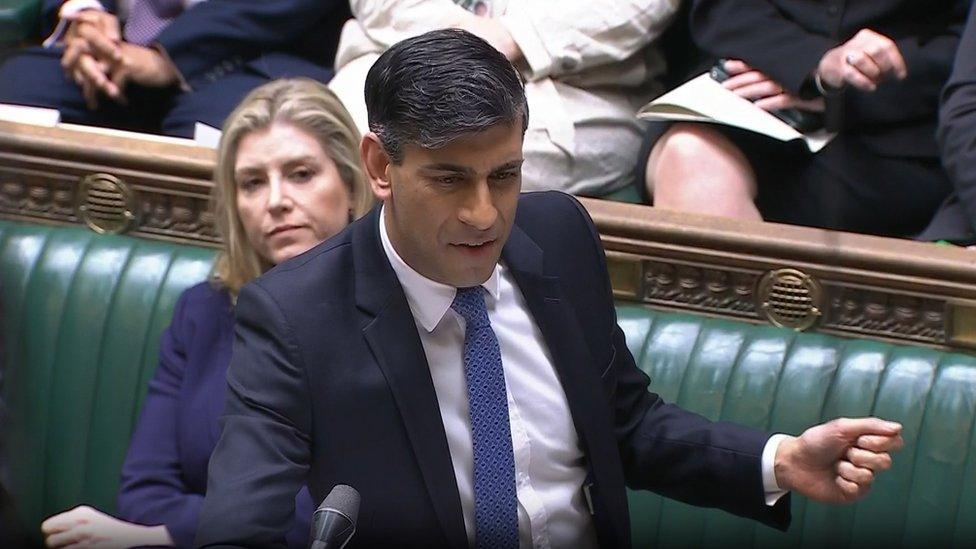Dublin asylum seekers say new accommodation flooded
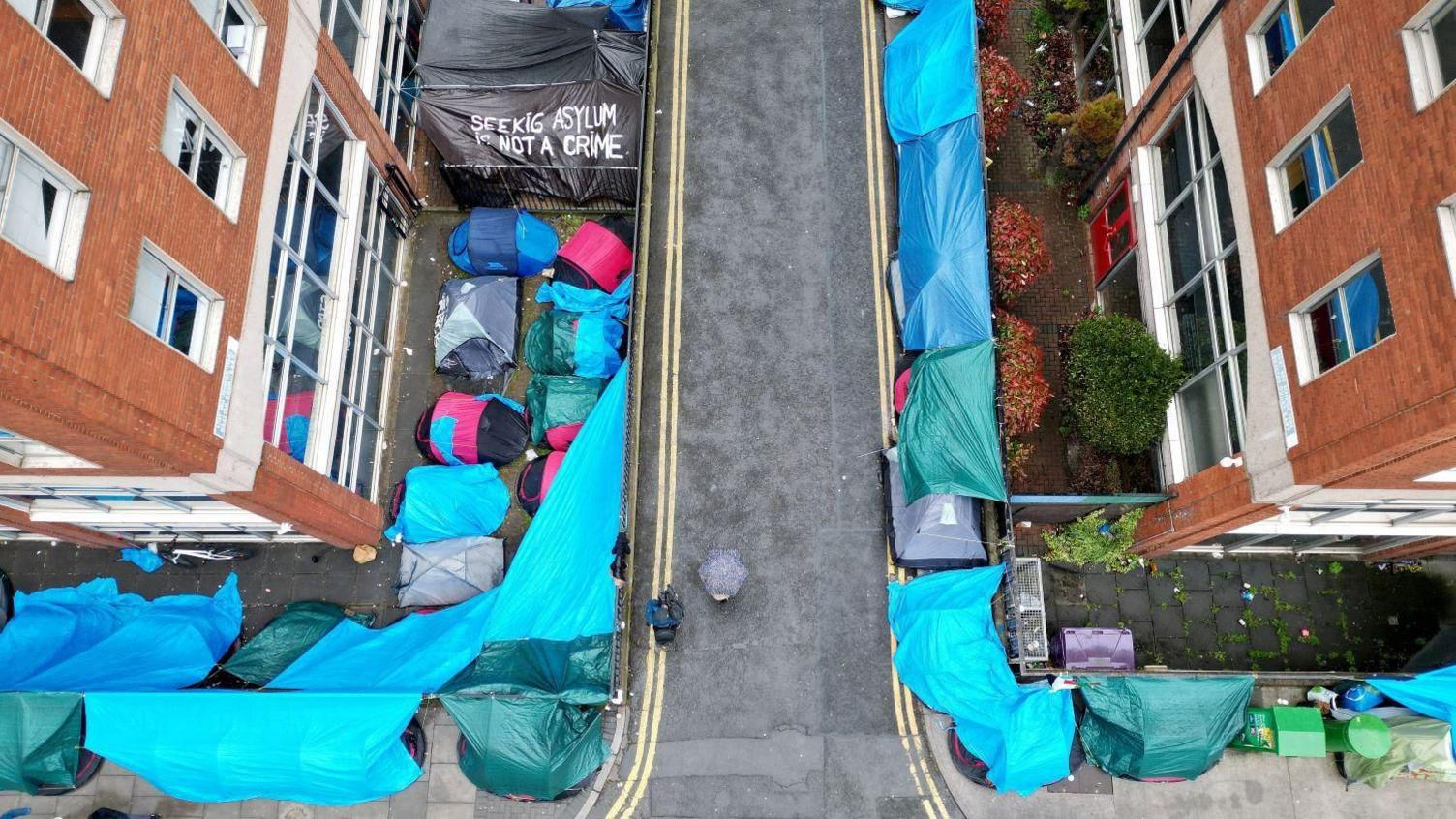
The encampment set up outside the International Protection Office in Dublin was moved on Wednesday
- Published
Asylum seekers moved from Mount Street in Dublin have said their new tented accommodation was flooded on Wednesday night.
The men said illness, a lack of running drinking water and the isolated site has all impacted their situation.
More than 100 people have been moved to Crooksling in the Dublin mountains, an hour from the city centre.
The asylum seekers were bussed to “more appropriate accommodation” according to the Irish government, on Wednesday morning.
This was the third clearance of a makeshift campsite outside the International Protection Office , and the second time asylum seekers have been sent to Crooksling.
In March, a number of men sent to the accommodation returned to the city centre citing lack of facilities and feeling unsafe.
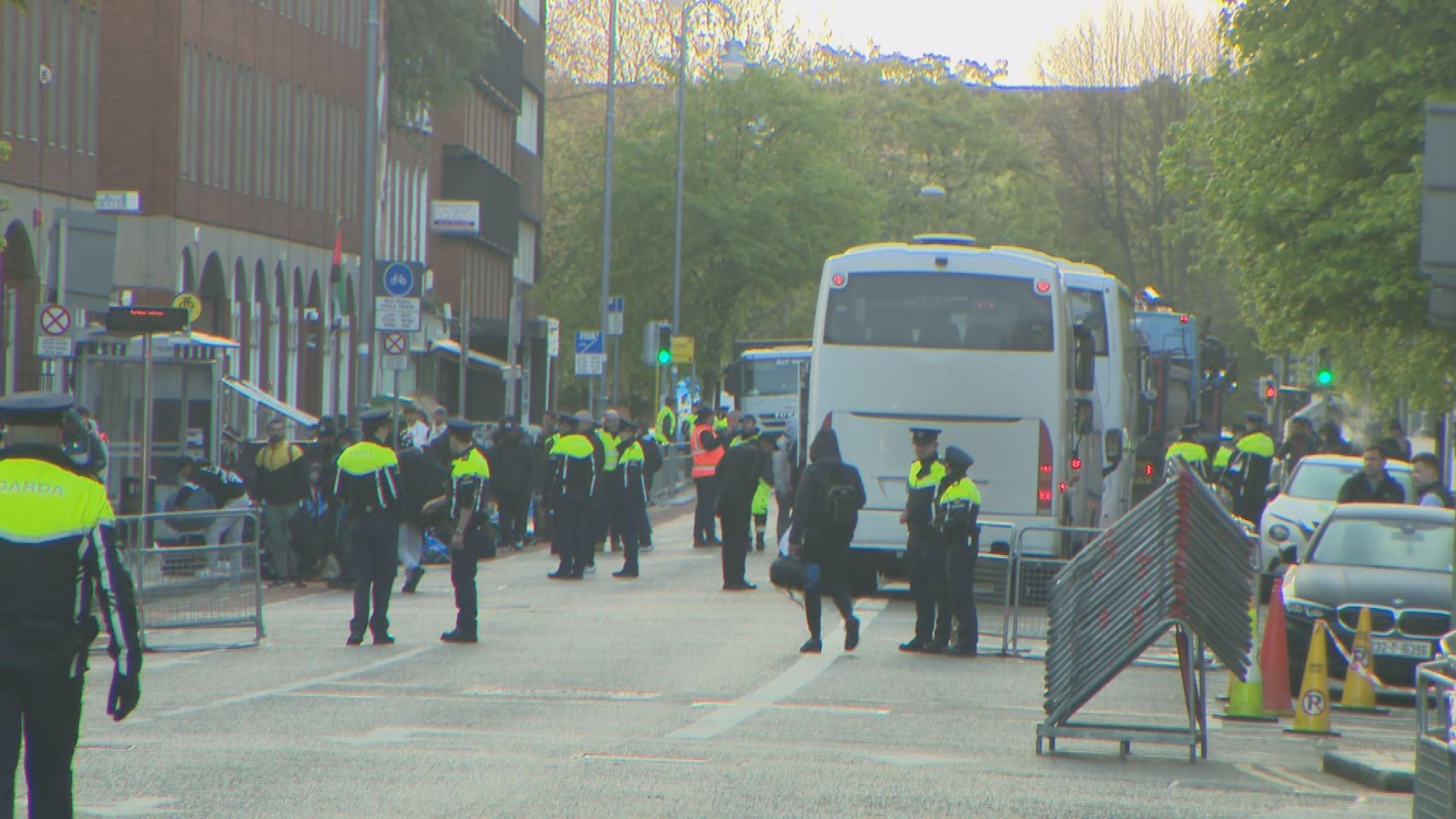
Hundreds of asylum seekers had been living in tents in Dublin city centre
The men at Crooksling are mainly from Palestine, Syria, Jordan and Algeria. They said they were nervous of the media and asked not to be identified.
A group told BBC News NI that constant rain on Wednesday night meant water was leaking into their tents and flooded the small shelter.
Twelve men are sharing one large tent, with about 10 large tents in the compound.
They said they could not tell the staff at the centre the tents had flooded because of a lack of translators on site.
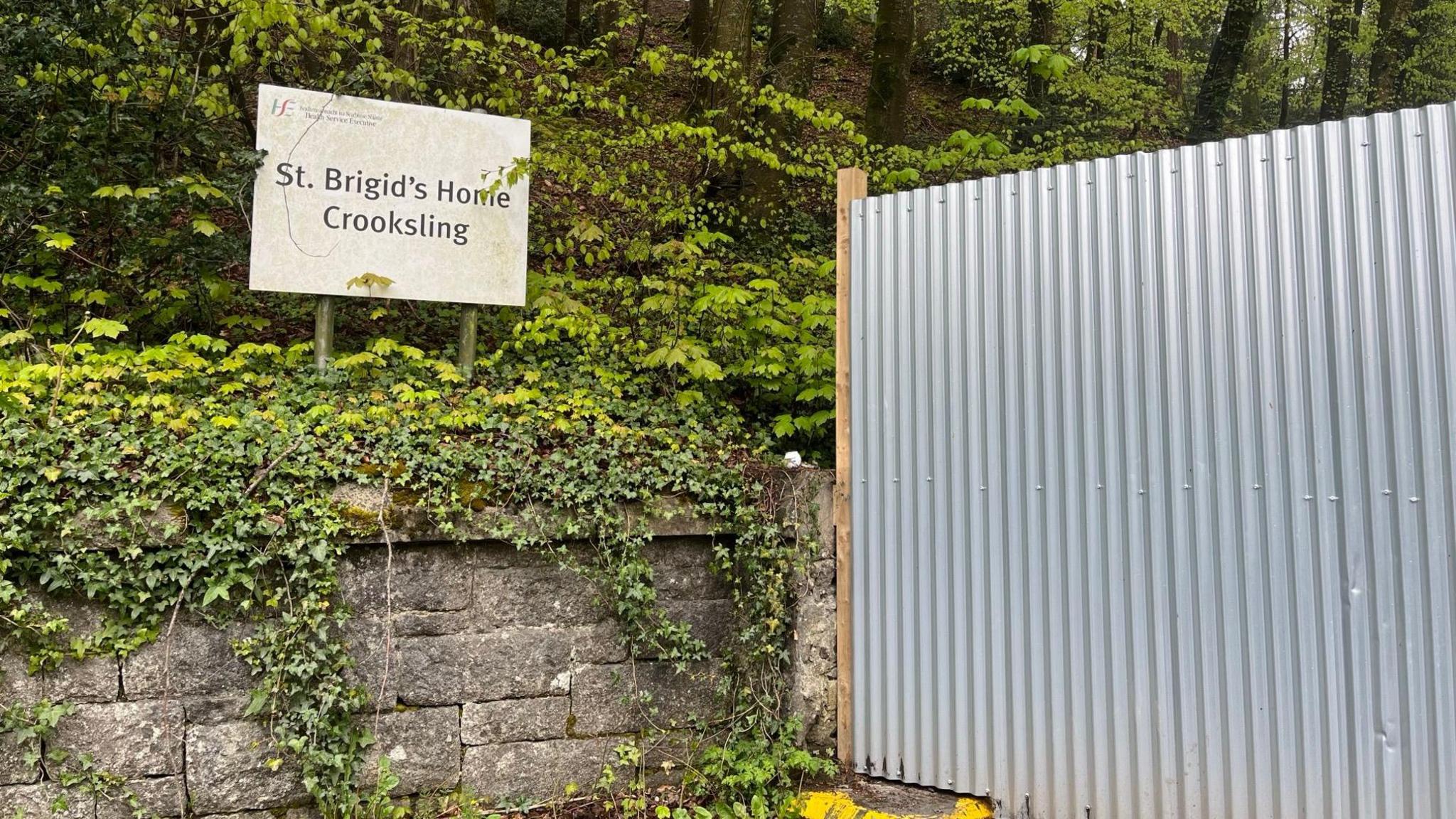
Asylum seekers have been moved to accommodation at Crooksling in County Dublin
One man said a number of people had developed health issues after sleeping in tents at Mount Street where sanitary conditions were poor and there was no access to toilets.
“A lot of people with medical issues like influenza, they have back pains, the neck pains everything from living in the tents,” he said.
A mobile medical facility visited Crooksling on Thursday to treat the men.
Another man claimed conditions at Crooksling were not liveable and many would like to leave.
He claimed they did not have access to running drinking water.
The men at Crooksling said meals are provided three times a day, but said there are no cooking facilities.
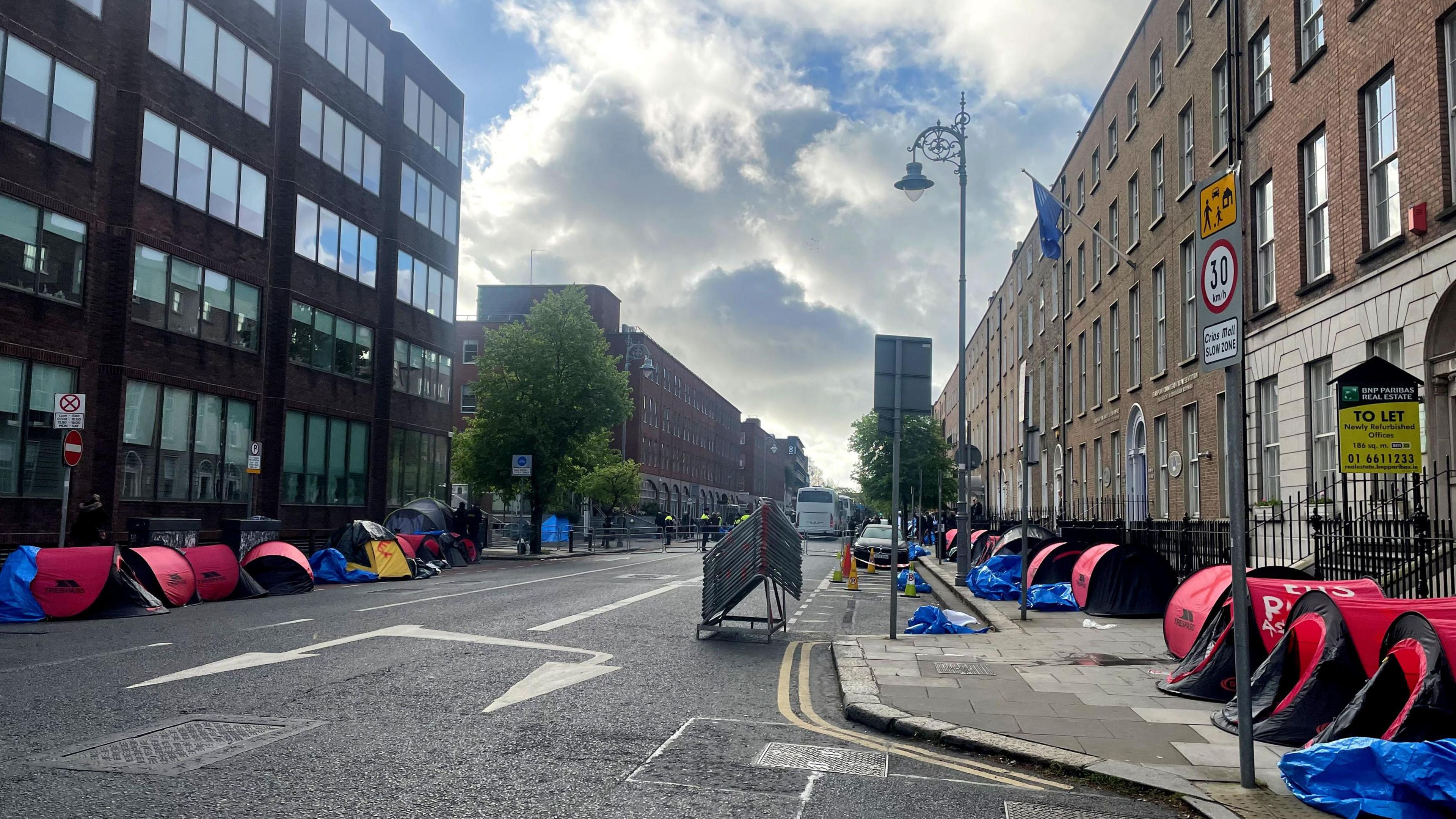
Simon Harris said that once asylum seekers sleeping on the street were given accommodation, the Mount Street encampment would not be allowed to return
The Irish government has not confirmed where new asylum seekers entering the state will go as the state ran out of accommodation last year.
A large crowd who gathered on Thursday at the International Protection office in Dublin were told there was no accommodation available and were given details of homeless services.
Charities like the Irish Refugee Council now believe the number of homeless asylum seekers in Ireland stands at around 1,800 - on top of the estimated 14,000 Irish people without accommodation.
The Irish government's cabinet sub-committee on immigration will meet on Thursday after a week of diplomatic disagreement with Britain.
The committee, made up of ministers who have a role in the immigration issue, including housing, justice and integration, is set to debate the issues which have arisen from Justice Minister Helen McEntee's comments that 80-91% of new arrivals seeking asylum have crossed the border with Northern Ireland.
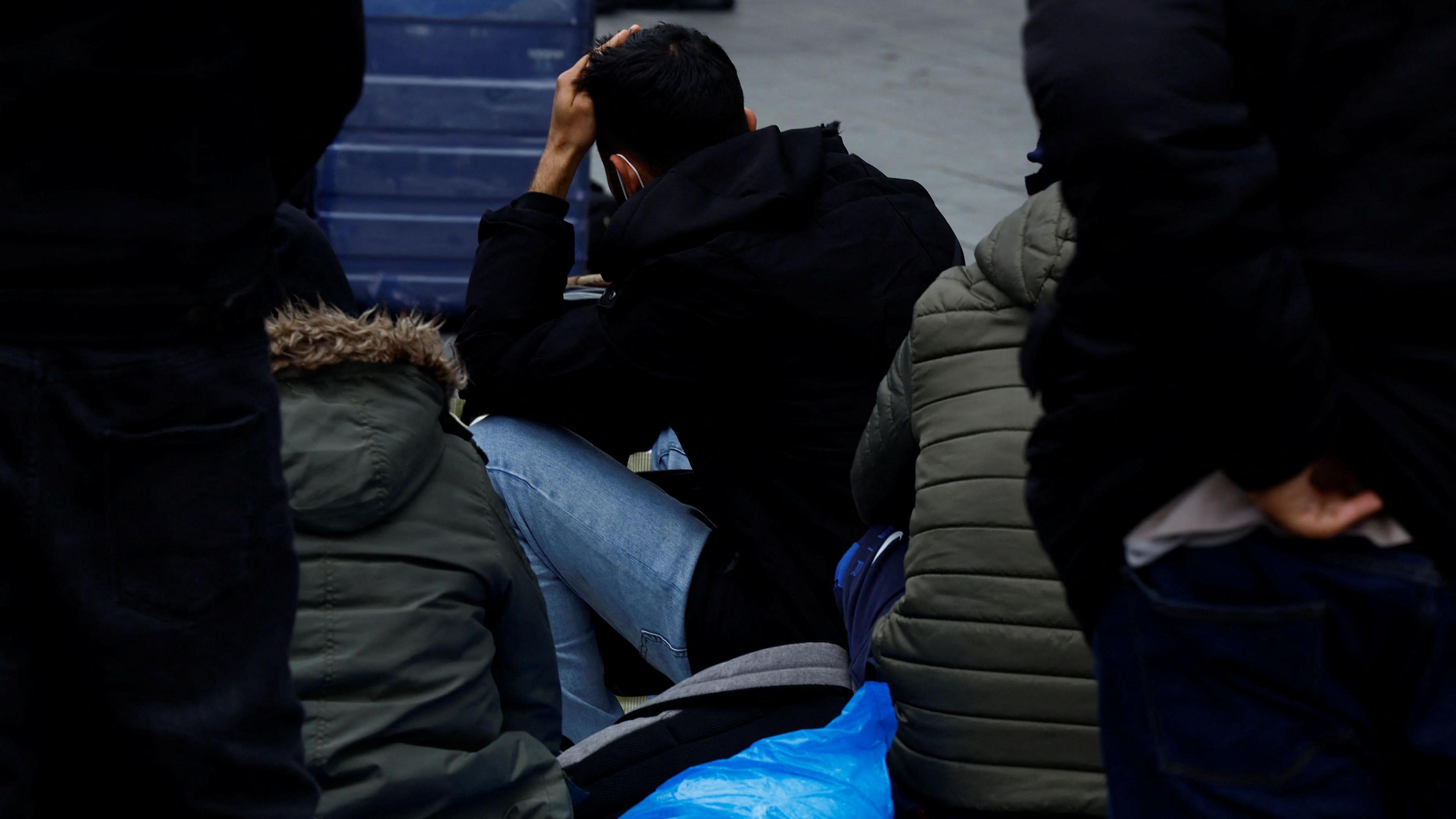
Ministers are set to discuss ways in which derelict buildings such as defunct hospitals and hotels can be brought into state use to house those seeking asylum.
The committee, which deals with all issues surrounding migration, will also discuss efforts that are being made to process asylum applications quicker.
The Irish government has been keen to underline that their immigration system must be "firm but fair" but have recently ramped up mention of deportation and returns amid clashes between Gardaí and anti-immigrant protestors.
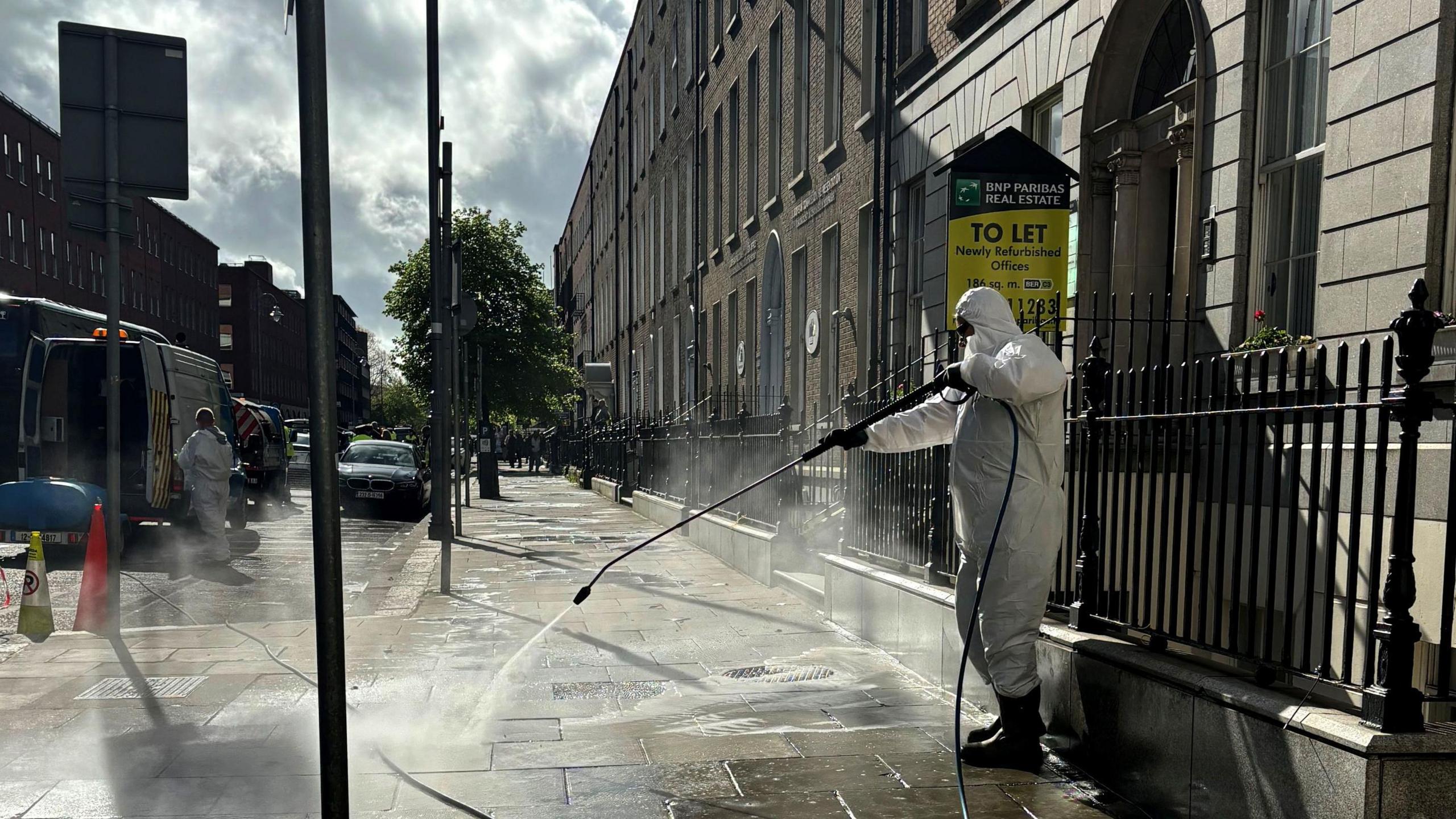
Authorities cleared the asylum seekers from a makeshift camp in central Dublin on 1 May.
Ireland to redesignate UK as 'safe' for asylum
- Published30 April 2024
285 Dublin asylum seekers moved from Mount Street tents
- Published1 May 2024
The Irish government has recently expressed concern about the number of asylum seekers coming from the UK to the Republic of Ireland.
On Tuesday, a plan to draft new Irish legislation which would redesignate the UK as a "safe country" to which asylum seekers can be returned was approved.
Related topics
- Published13 June 2024
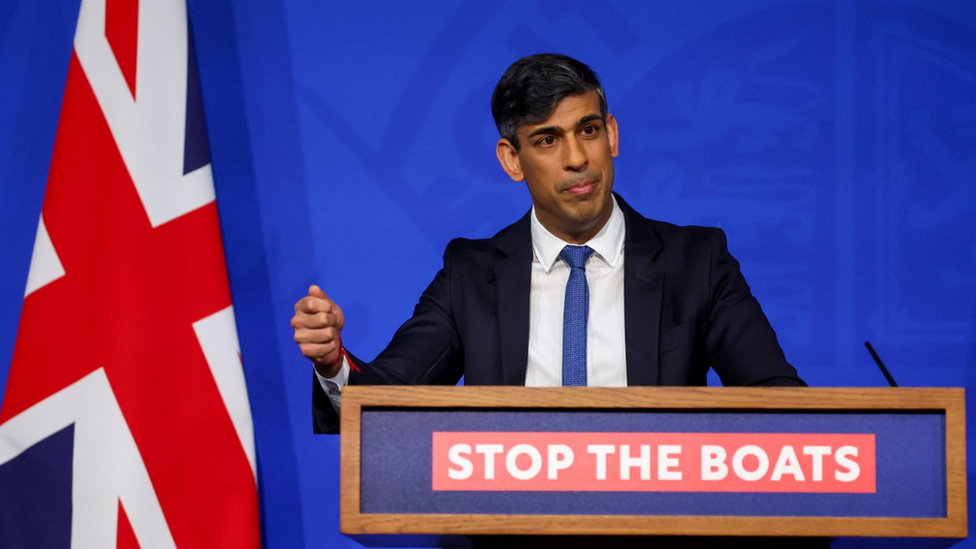
- Published28 April 2024
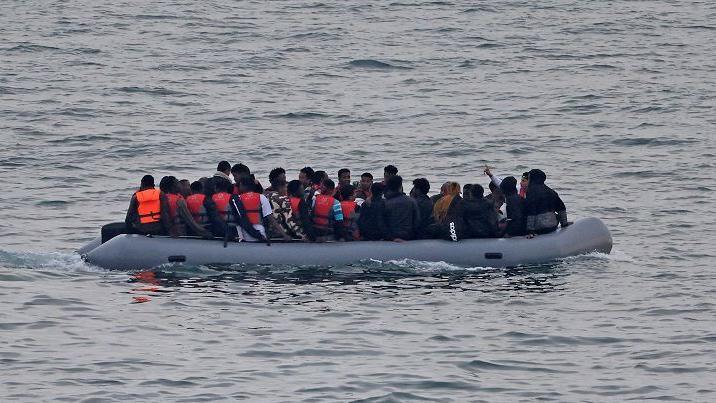
- Published1 May 2024
